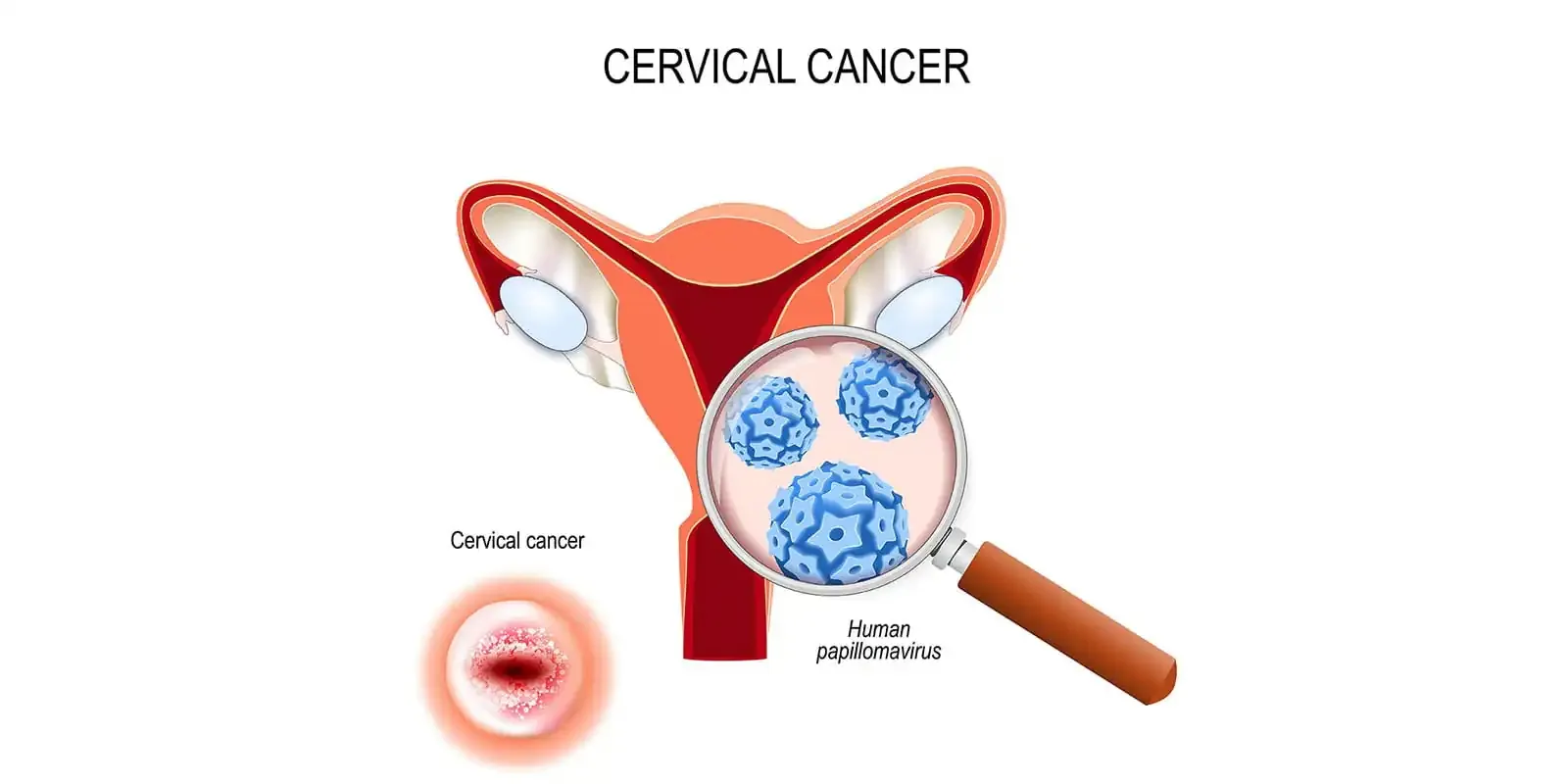HPV (Human Papilloma Virus) is actually a term we use to describe a group of about 100 viruses that often attack human skin. Most of these viruses do not cause problems, but some types can cause warts or even cancer.
HPV is a sexually transmitted disease (STD) and is transmitted through vaginal or anal sexual contact and oral sex, as well as through skin contact in the genital areas and sharing of sexual aids (sex toys).
Symptoms of HPV: When should I go to the gynecologist?
The HPV virus usually does not cause symptoms, and most people do not know they have it unless they undergo tests for STDs or Pap tests. The virus is so common that most people will contract some type of HPV during their lifetime. HPV is not only contracted by people with multiple partners, but even a single unprotected sexual encounter with a carrier is enough.
There is no definitive treatment against HPV. Most HPV infections, which do not cause any problems, are removed from the body within 2 years thanks to our immune system. However, low-risk types of human papillomavirus can cause warts, i.e., tumors around the vagina and rectum, the well-known genital warts. On the other hand, high-risk types can cause cancer in the reproductive organs, such as cervical cancer, vulvar cancer, or rectal cancer.
Πόσο κινδυνεύετε από τον HPV; Κάντε το Τεστ!
Το παραπάνω αποτέλεσμα είναι μια απλή εκτίμηση και δεν αντικαθιστά την ιατρική διάγνωση.
Συμπτώματα του ιού HPV: Πότε πρέπει να πάω στο γυναικολόγο;
Ο hpv είναι ένας ιός που συνήθως δεν προκαλεί συμπτώματα και οι περισσότεροι άνθρωποι δεν γνωρίζουν ότι τον έχουν, παρά μόνο αν κάνουν εξετάσεις για ΣΜΝ ή τεστ Παπανικολάου. Ο ιός είναι τόσο συχνός, ώστε η πλειονότητα των ανθρώπων θα κολλήσει κάποιον τύπο HPV κατά τη διάρκεια της ζωής τους. HPV δεν κολλάνε μόνο άτομα με πολλούς συντρόφους, αλλά αρκεί ακόμα και μια σεξουαλική επαφή χωρίς προφύλαξη με άτομο που είναι φορέας.
Δεν υπάρχει κάποια οριστική θεραπεία έναντι του HPV. Οι περισσότερες λοιμώξεις από τον ιό hpv, οι οποίες δεν προκαλούν κανένα πρόβλημα, απομακρύνονται από το σώμα μέσα σε 2 χρόνια χάρη στο ανοσοποιητικό μας σύστημα. Ωστόσο, οι χαμηλού κινδύνου τύποι ( με πιο συχνούς τους τύπους 6 και 11 ) του ιού των ανθρώπινων θηλωμάτων μπορεί να προκαλέσουν κονδυλώματα, δηλαδή εξογκώματα γύρω από τον κόλπο και τον πρωκτό, τα γνωστά κονδυλώματα των γεννητικών οργάνων. Ενώ από την άλλη, οι υψηλού κινδύνου τύποι ( με πιο συχνούς τους τύπους 16 και 18 ) μπορεί να προκαλέσουν καρκίνο στα γεννητικά όργανα, όπως καρκίνο του τραχήλου της μήτρας, καρκίνο του αιδοίου ή καρκίνο του πρωκτού.

Myths and Truths About Warts
Warts is a condition associated with many prejudices regarding people's sexual behaviour, which is why patients are filled with awkwardness, shame, and sometimes fear, as there is a lot of misinformation. The truth is that studies have shown that about 85% of sexually active women up to the age of 25 have come into contact with the HPV virus.
Here are the most common questions about warts, so you know what is true and what is a myth:
- What are warts? How do I recognize them?
Warts are small lumps in the colour of the skin, grey or white with a rough texture. Initially, they start as imperceptible, soft, and small lumps that go unnoticed and may mistakenly be considered pimples or moles (common moles). When they develop, they usually have a cauliflower-like shape, but they can also be flat. Sometimes they appear in groups at different points in the area. They usually do not hurt and only rarely can cause symptoms such as:
- Mild bleeding
- Itching, tingling, or irritation of the genitals
- Burning sensation
- Pain during sexual intercourse or urination
- When do warts appear?
Some people develop genital warts within a few weeks of sexual contact with someone with the HPV virus, but it may take months or even years to appear.
- If I have HPV, will I definitely have warts?
No. It is very likely that you have the virus but do not have warts. Also, you may have internal warts in the rectum or vagina and not know it.
- Can I get genital warts more than once?
Yes. If you have been infected with a type of HPV that causes warts, there is no permanent cure. Therefore, you may develop warts more than once, even if you have received treatment for their removal. This usually happens when our immune system fails to adequately suppress the action of the virus.
- Do warts cause cancer?
No. The types of HPV that cause cancer are high-risk and are not the same as those that cause warts, which are typically low-risk. This, of course, does not mean that it is impossible to contract another type of virus associated with the appearance of precancerous lesions or cancer.
- Can I transmit the human papillomavirus HPV and warts after completing treatment?
Yes. Infection from types of HPV that cause warts is likely lifelong. The fewer the lesions, the lower the viral load, and therefore the likelihood of transmitting the HPV virus.
Πηγές
https://www.moh.gov.gr/articles/health/dieythynsh-dhmosias-ygieinhs/emboliasmoi/ethniko-programma-emboliasmwn-epe-enhlikwn/12678-tropopoihsh-ethniko-programma-emboliasmwn-enhlikwn-2024


